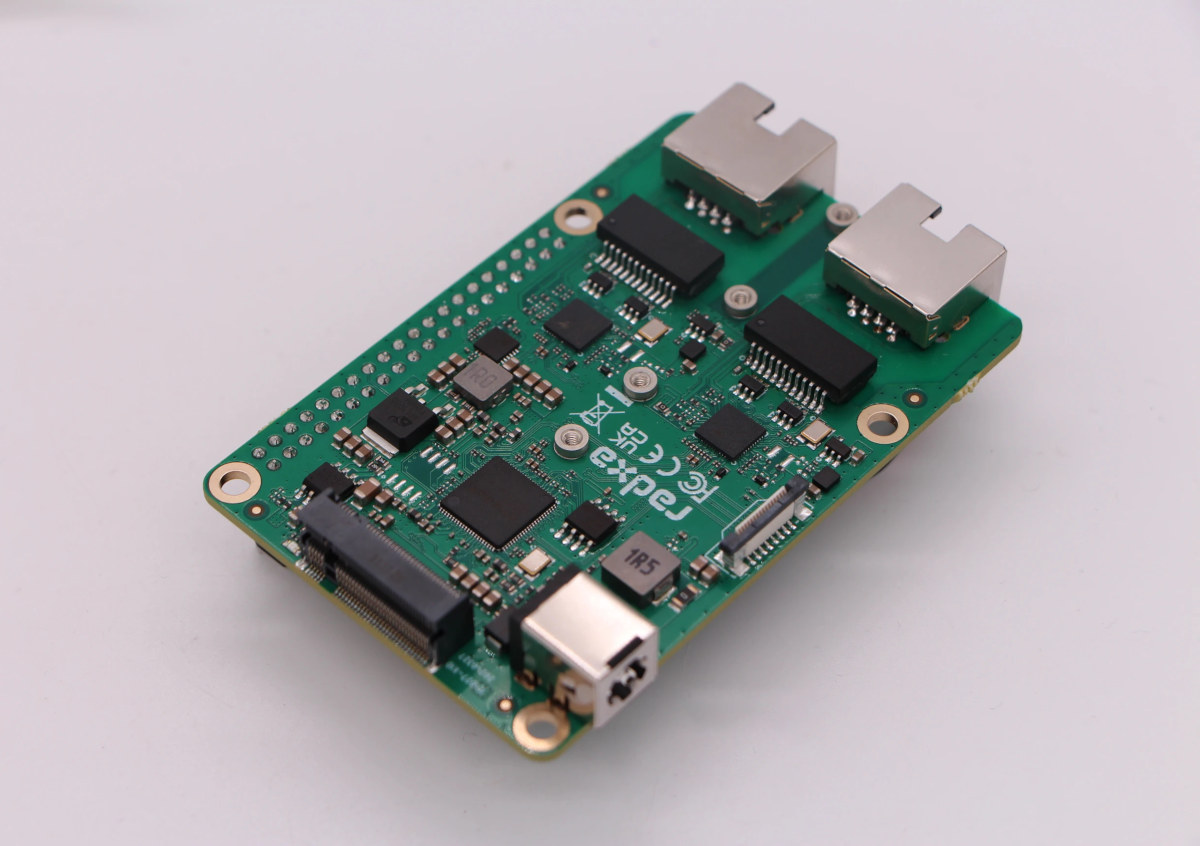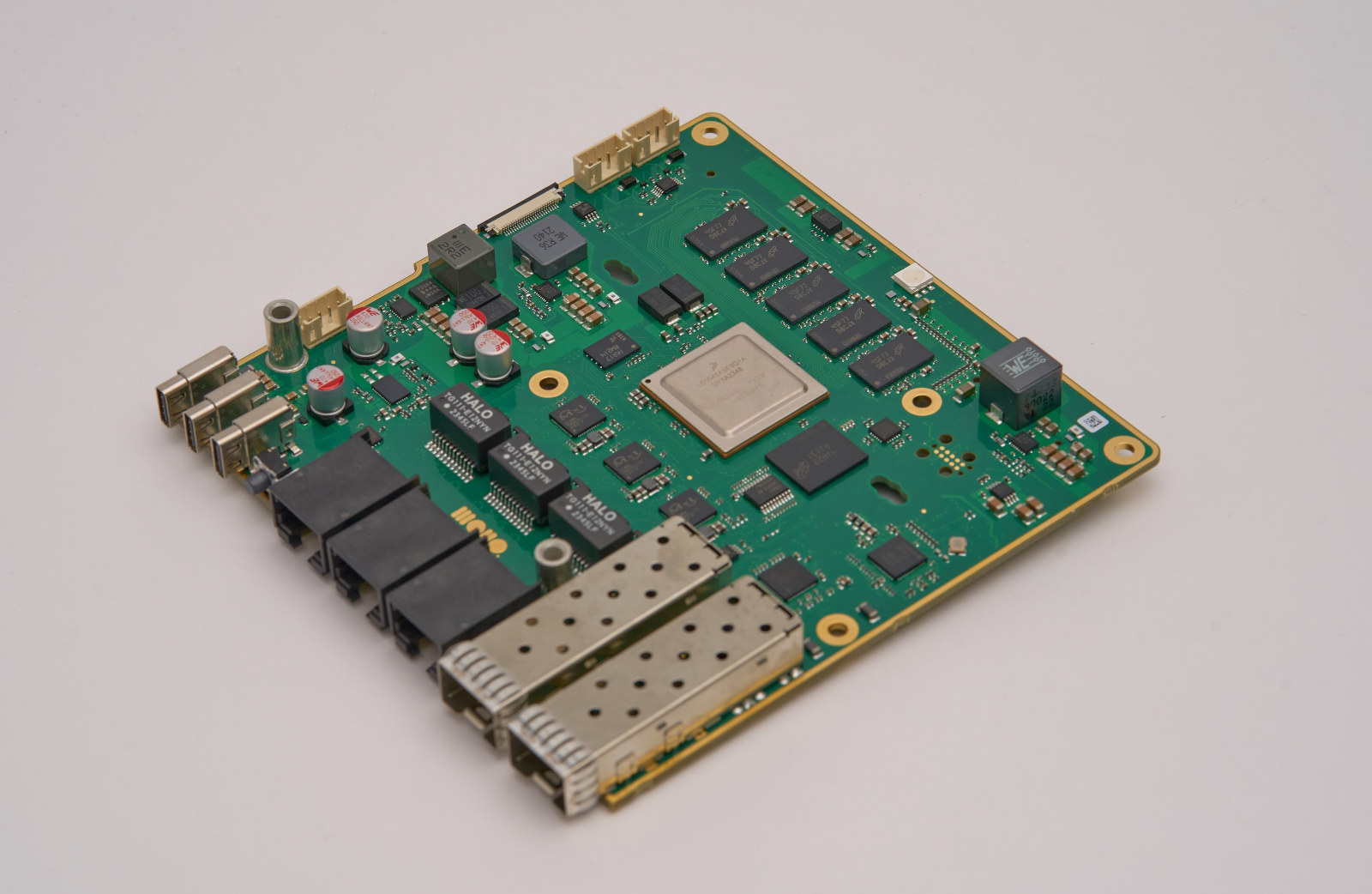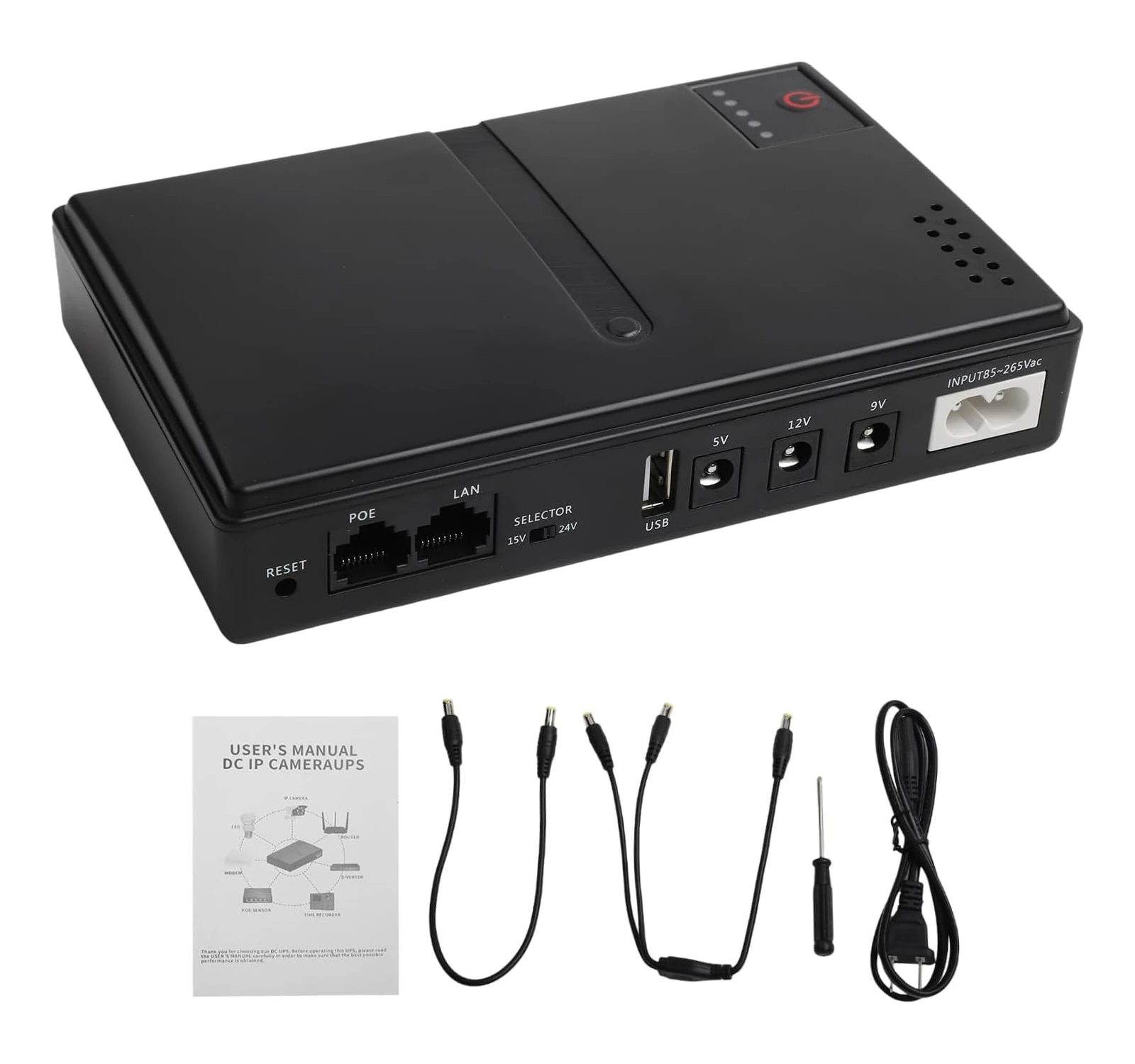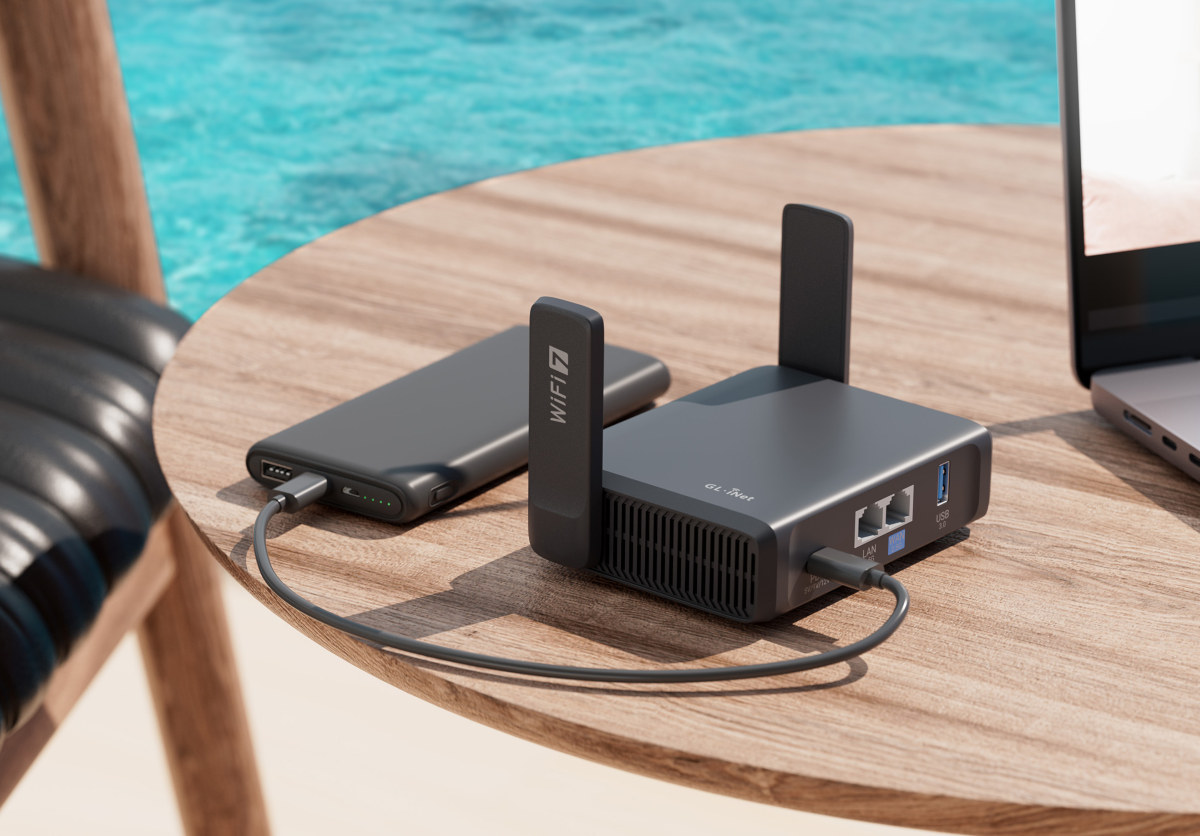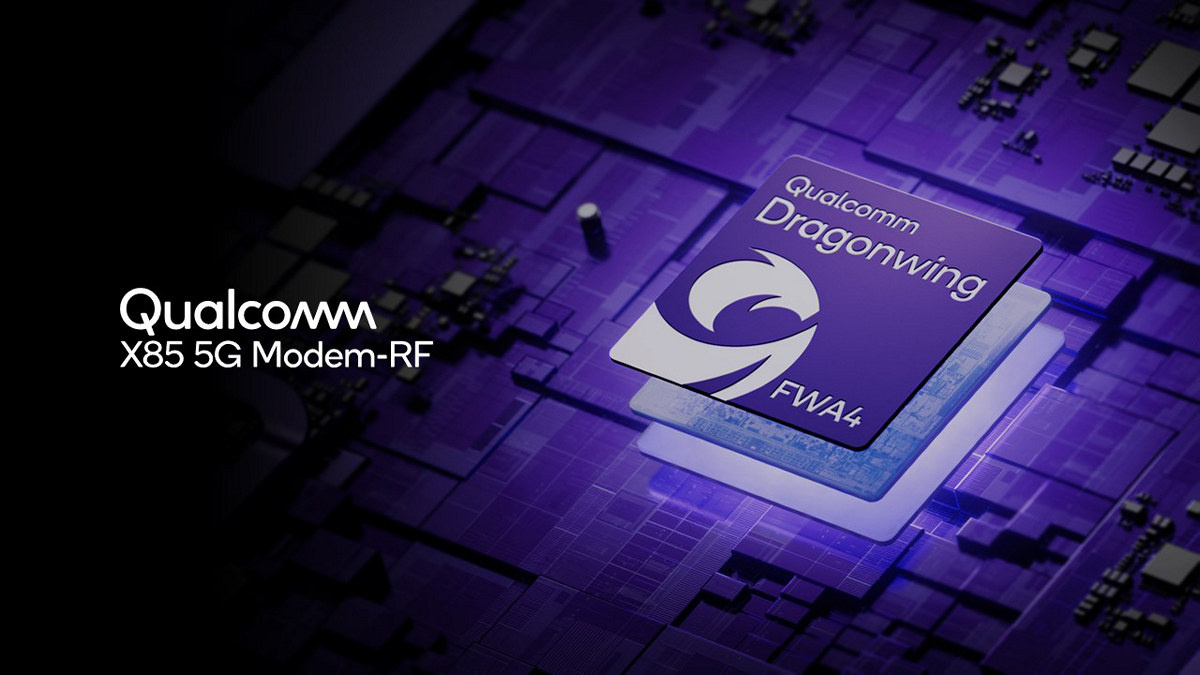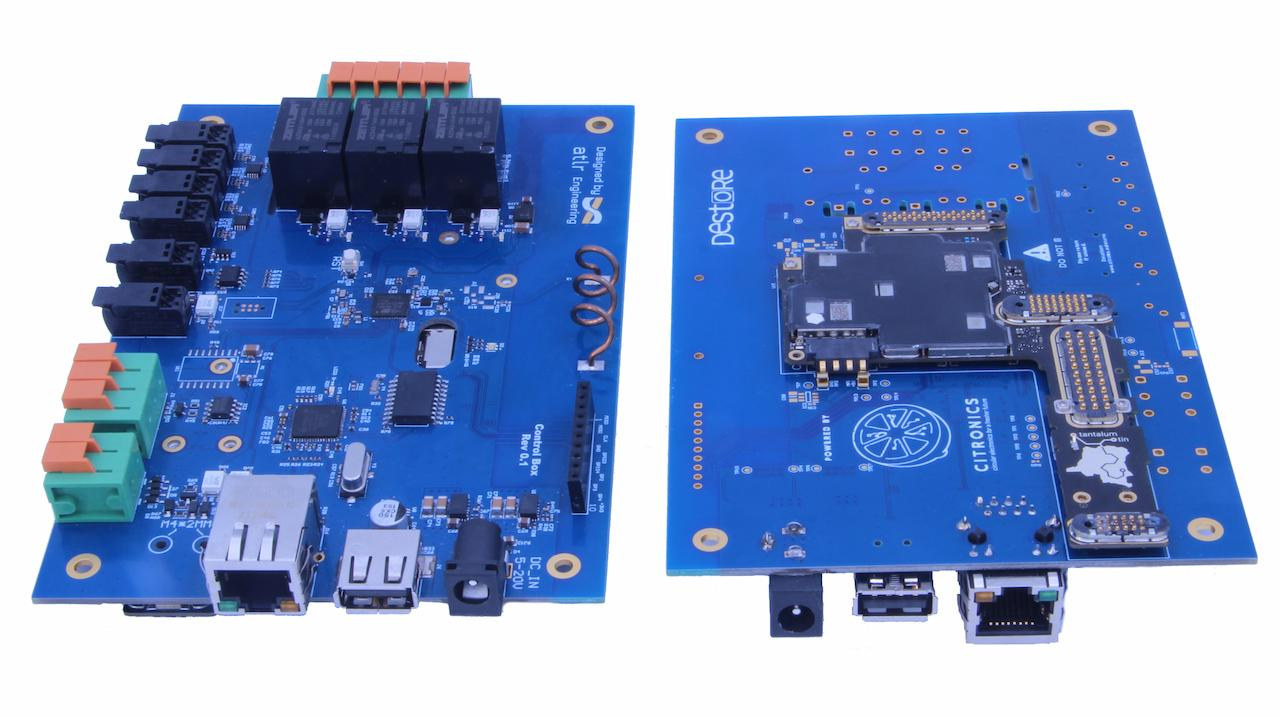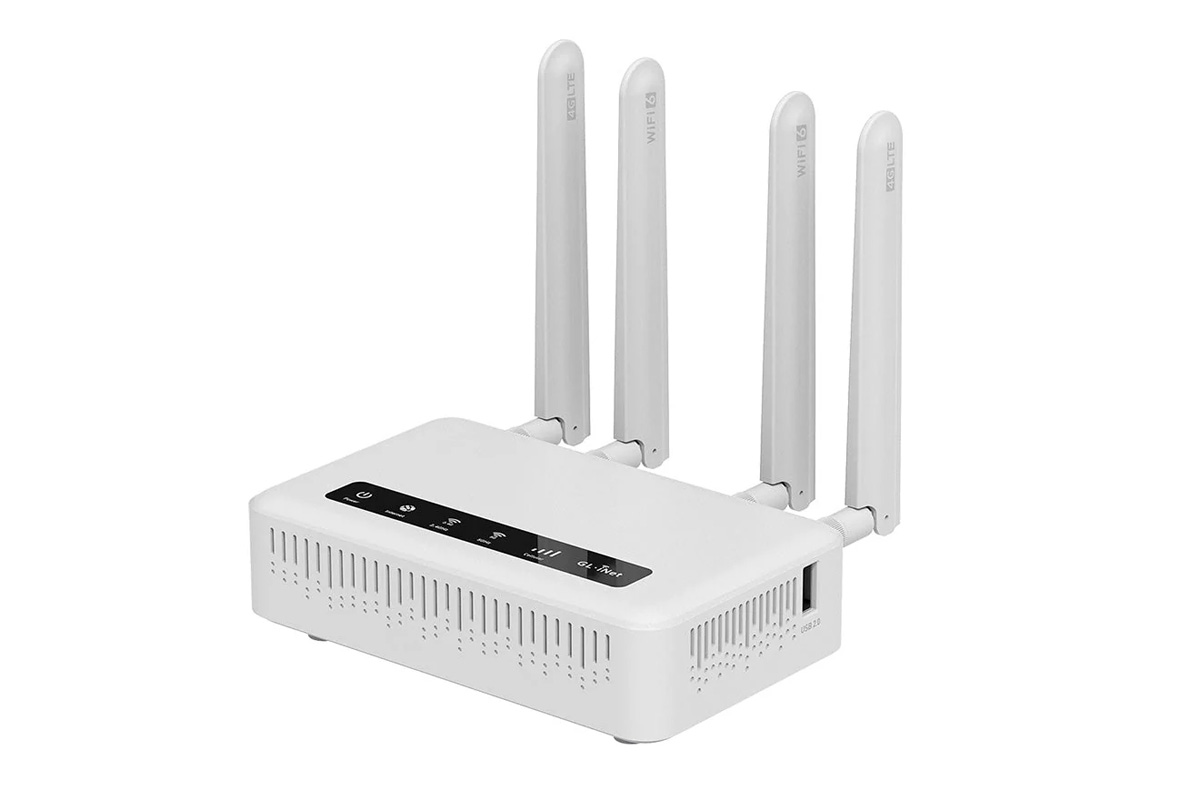The Radxa Dual 2.5G Router HAT is an expansion board adding 2.5GbE networking and an M.2 PCIe x1 socket for NVMe SSD storage to the Raspberry Pi 5 and compatible SBCs with a PCIe FFC connector. We had previously seen Raspberry Pi 5 HATs with 2.5GbE such as the Pineberry HatNET! 2.5G, or even one with 2.5GbE and NVMe SSD (52Pi W01 U2500 HAT), but the Radxa Dual 2.5G Router HAT is the first to implement two 2.5 Gbps Ethernet ports to enable routing, and also features an NVMe SSD as a bonus. Radxa Dual 2.5G Router HAT specifications: Supported SBCs – Raspberry Pi 5, Radxa ROCK 2F, Radxa ROCK 2A, Radxa ROCK 5C, the upcoming Radxa 4D (RK3576), and potentially others PCIe Switch – ASM2806 PCIe 3.0 switch chip with PCIe Gen3 x2 upstream and four PCIe 3.1 lanes downstream up to 8GT/s Storage – 1x M.2 M-Key socket […]
Mono Gateway – A 10GbE nano-ITX router board powered by NXP Layerscape LS1046A
The Mono Gateway is a nano-ITX router board powered by an NXP LayerScape LS1046A quad-core processor and equipped with two 10GbE SFP+ cages, three gigabit Ethernet RJ45 ports, and M.2 sockets for wireless WiFi 6 and/or tri-band WiFi 5, Bluetooth, and Thread modules. Tomaž Zaman’s YouTube channel description reads “I hate routers”, and that’s exactly why the “Gateway” came to life. He wanted a router that meets his expectations and runs open-source software. The NXP Layerscape LS1046A was selected thanks to its ability to support 10 Gbps Ethernet with up to 26 Gbps line-rate throughput for VLANs, PPPoE, and NAT. Let’s have a look. Mono Gateway specifications: SoC – NXP Layerscape LS1046A quad-core Cortex-A72 processor @ 1.6 GHz System Memory – 8 GB ECC RAM @ 2100 MT/s Storage 32 GB eMMC flash for the OS 64 MB NOR flash for the bootloader Networking 2x SFP+ 10 Gbps Ethernet cages […]
Mini UPS with 5V, 9V, 12V DC, and PoE output could be useful for routers, security cameras, SBCs, and mini PCs
Most uninterruptible power supplies (UPS) require AC voltage and use specific batteries that must be changed every few years. But those may be oversized and not the most efficient if you just want to keep single board computers (SBCs), low-power mini PCs, routers, or security cameras up and running during power failures. Luckily, some mini UPS solutions use standard rechargeable 18650 batteries, output 5V, 9V, or 12V DC, or even PoE (15V/24V) which may be more suitable for those use cases. Many mini UPS solutions come from WGP (Wonderful Green Power), so let’s have a look at the WPG103A model. WPG103A mini UPS specifications: Batteries – 4x 18650 batteries for a combined 10,400 mAh capacity Protection – Overcharge, over-discharge, overcurrent, and short circuit protection Misc – Power button, status LEDs Power Input – 12V/2A via DC jack Power Output 5V via USB Type-A port (likely limited to 1.5A or 2A […]
GL.iNet Slate 7 (GL-BE3600) WiFi 7 travel router up for pre-order for $96 and up
GL.iNet Slate 7 (GL-BE3600) is yet another travel router from the company, but it adopts the latest WiFi 7 standard with combined link speed of up to 3600 Mbps. The Slate 7 router supports both OpenVPN up to 100 Mbps and WireGuard up to 540 Mbps, and integrates with over 30 VPN services. The WiFi 7 router is relatively affordable starting at just $96 for pre-orders, but that’s limited to the first 800 orders, and after that the price goes up to $102 for the next 1,000 pieces, and the retail price will be $120 after that. Orders are limited to one per customer for the first two offers, and 10 per customer at the $120 price tag during the pre-order period. Deliveries are scheduled to start at the end of April / beginning of May. GL.iNet Slate 7 (GL-BE3600) specifications: SoC – Qualcomm quad-core @ 1.1GHz (Likely the IPQ5322, […]
Qualcomm X85 5G modem powers 12.5Gbps Dragonwing Fixed Wireless Access (FWA) Gen4 Elite platform
As Mobile World Congress 2025 has just started, Qualcomm has announced the X85 5G modem with up to 12.5 Gbps peak download speed, 3.7 Gbps uploads and targeting a wide range of applications from Android smartphones to PCs, FWA routers, industrial applications with Ethernet TSN, or even railways with support for FRMCS (Future Railway Mobile Communication System) in Europe. The company also introduced the Dragonwing Fixed Wireless Access (FWA) Gen 4 Elite platform based on the Qualcomm X85 5G modem, a quad-core processor, GNSS, tri-band Wi-Fi 7, and network Edge AI coprocessor with up to 40 TOPS of NPU processing power. Qualcomm X85 5G modem Qualcomm X85 5G Modem-RF System specifications: Peak Download Speed – 12.5 Gbps (FR1 + FR2), 10.3 Gbps Peak Upload Speed – 3.7 Gbps Cellular Modem-RF – 10CC aggregation in mmWave, 6CC aggregation in 5G sub 6GHz, 400 MHz carrier aggregation (DL) Cellular Technology 5G NR […]
Citronics built a router based on the Fairphone 2 mainboard
Belgium-company Citronics has designed a router based on the mainboard of the Fairphone 2 smartphone, connecting the Qualcomm Snapdragon 801 “system-on-module” to a carrier board with Ethernet, USB ports, and other connectors, while leveraging 4G LTE, WiFi, and Bluetooth connectivity from the phone’s core board. Citronics calls this type of hardware “Circular Microcomputers,” which refers to small computers focusing on sustainability and circular economy principles using parts from discarded devices like old smartphones. There’s actually more than one router, as Citronics designed its own development kit, and also partnered with other companies to design custom gateways based on the Fairphone 2 mainboard. Let’s have a look at the devkit first. Citronics devkit: Fairphone 2 mainboard SoC – Qualcomm Snapdragon 801 (MSM8974AB) quad core Krait 400 processor @ up to 2.26 GHz with Adreno 330 GPU System Memory – 2 GB LPDDR3 Storage – 32GB eMMC flash Connectivity – 2G/3G/4G LTE, […]
GL.iNet Spitz Plus GL-X2000 – An affordable WiFi 6 cellular router with GbE, dual SIM, and load balancing capabilities
GL.iNet Spitz Plus GL-X2000 is a Wi-Fi 6 cellular router with GbE networking, two nano SIM slots, interchangeable high-gain antennas, and more. It is built around a Qualcomm IPQ5018 dual-core 1 GHz SoC and supports AX3000 Wi-Fi speeds with data rates of up to 574 Mbps on 2.4GHz and 2402 Mbps on 5GHz. Other features include support for multi-WAN connectivity, failover, and load balancing for stable connections, it also comes with preinstalled VPN support for over 30 providers. It also has remote management features that allow users to monitor data usage, update firmware, and troubleshoot through a centralized interface. The device is available in different LTE variants for North American and international markets, supporting region-specific bands. These features make this router useful for applications such as remote work, mobile offices, industrial IoT, and backup connectivity in areas with unreliable broadband. GL-X2000 (Spitz Plus) specifications: SoC – Qualcomm IPQ5018 dual-core Cortex-A53 […]
OpenWrt 24.10 released with Linux 6.6, TLS 1.3 by default, and 1970 supported devices
OpenWrt 24.10 open-source lightweight Linux operating system for routers has just been released. It’s been upgraded to Linux 6.6 from Linux 5.15 in OpenWrt 2023.05, supports TLS 1.3 by default, improves support for WiFi 6 (802.11ax), and adds initial support for WiFi 7 (802.11be). After over one year of work since the release of OpenWrt 23.05, OpenWrt 24.10 adds over 5400 commits, and the total number of supported devices is now close to 2,000 at 1,970. It’s also the first stable release supporting OpenWrt One, the router directly designed by OpenWrt developers in collaboration with Banana Pi. OpenWrt 24.10 highlights: TLS 1.3 support in default images with MbedTLS 3.6 Activate POSIX Access Control Lists and file system security attributes for all file systems on devices with big flash sizes. Needed by docker. Note this is not enabled for all targets with the small_flash feature flag, including ath79/tiny, bcm47xx/legacy, lantiq/ase, lantiq/xrx200_legacy, […]


